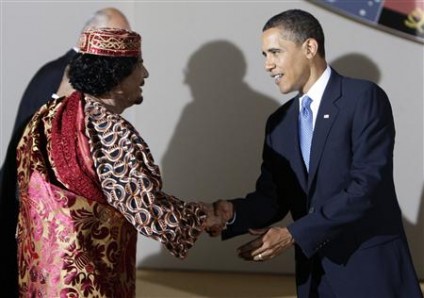Wall Street used complex computer algorithms that were supposed to finely tune the functioning of financial markets. Remember how all of that leveraging was okay, because the big financial houses had all those mathematical formulas working for them? Well, that didn’t work out so well.
And now as Wired points out, algorithms didn’t do any better for the Pentagon in predicting the outbreak of unrest in Egypt. The Pentagon has spent more than $125 million on computer models that are suposed to forecast political unrest. Didn’t work. “All of our models are bad, some are less bad than others,” Wired quotes Mark Abdollahian, who has “built dozens of predictive models for government agencies,” as saying. Bravo to Mr. Abdollahian for his honesty.
Wired notes that some models are more successful than others. Scholar Bruce Bueno de Mesquita has established a forecasting model that predicted Iranian leader Ayatollah Khomeini’s successor five years ahead of time. But count me as deeply suspicious of any effort to “quantify” human conduct. Human beings are unpredictable, fickle and react differently in the same circumstances. I’ve never liked the term “political science.” Politics is not a science. It’s more an amalgamation of history, philosophy, psychology, demographics, economics, morality and geography. How do you quantify that? The hard sciences, such as math, will never be able to accurately predict human decision-making. They are simply one tool of many.
If we are staking our future intelligence efforts on computer models, we are in serious trouble. Human intelligence is still key. We are not going to be able to “tech” our way into a better intelligence system. At the end of the day its about human judgment. We need analysts who understand culture, language, and history, who also “think” like the other guy.

COMMENTS
Please let us know if you're having issues with commenting.